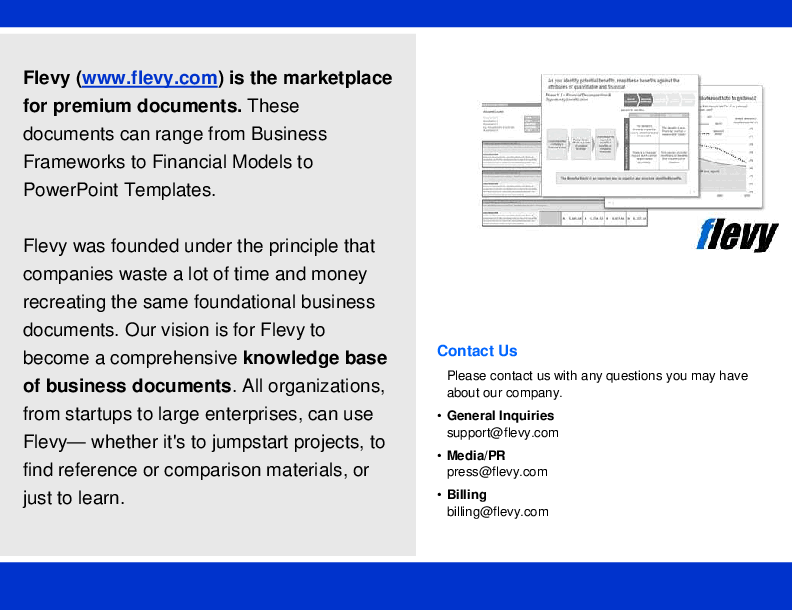SOP Monthly Team Performance Monitoring Meeting (Word DOCX)
Word (DOCX) 6 Pages
BENEFITS OF THIS WORD DOCUMENT
- Provides a Policy & Procedure of Monthly Team Performance Monitoring Meeting
- Provides a Flowchart of SOP Monthly Team Performance Monitoring Meeting
- Provides of Monthly Meeting Agenda Form – Performance Monitoring, Monthly Meeting Note Form (Meeting Minutes)
PERFORMANCE MANAGEMENT WORD DESCRIPTION
SOP Monthly Team Performance Monitoring Meeting
Contents :
1. Policy of Monthly Team Performance Monitoring Meeting
2. Procedure of Monthly Team Performance Monitoring Meeting
3. Flowchart of SOP Monthly Team Performance Monitoring Meeting
4. Monthly Meeting Agenda Form – Performance Monitoring
5. Monthly Meeting Note Form (Meeting Minutes)
The purpose of this procedure is to ensure that monthly performance monitoring meetings are successful and have a positive impact on the team's and the company's business performance.
1. Each division or department must hold monthly meetings with the main objective of discussing the success of team targets or evaluating the achievement of KPIs (Key Performance Indicators) in order to manage team performance optimally.
2. Monthly meetings are conducted before the 10th of the month.
3. Monthly meetings are held for a maximum of 90 minutes and have focused agendas, namely:
• Evaluate the previous month's achievement of KPIs or targets.
• Action plans or activities to be carried out in the coming month in order to efficiently meet KPIs and targets.
• What resources or help are required for the plan to run efficiently.
4. The purpose of this monthly meeting is to ensure that all team members' performance is optimized and that there is always a continuous improvement process in place to develop performance levels.
5. To ensure that the meeting runs efficiently, explain each issue in a direct and to-the-point manner; avoid being verbose; and always focus on concrete solutions.
Performance management is a corporate management tool that helps managers monitor and evaluate employees' work. Performance management's goal is to create an environment where people can perform to the best of their abilities and produce the highest-quality work most efficiently and effectively.
1. Performance management tools help people to perform to the best of their abilities and produce the highest-quality work most efficiently and effectively.
2. The precept of performance management is to view individuals in the context of the broader workplace system.
3. Performance management focuses on accountability and transparency and fosters a clear understanding of expectations.
A formal performance-management program helps managers and employees see eye-to-eye about expectations, goals, and career progress, including how an individual's work aligns with the company's overall vision. Generally speaking, performance management views individuals in the context of the broader workplace system. In theory, you seek the absolute performance standard, though that is considered unattainable.
Performance-management programs use traditional tools such as creating and measuring goals, objectives, and milestones. They also aim to define what effective performance looks like and develop processes to measure performance. However, instead of using the traditional paradigm of year-end reviews, performance management turns every interaction with an employee into an occasion to learn.
Managers can use performance management tools to adjust workflow, recommend new courses of action, and make other decisions that will help employees achieve their objectives. In turn, this helps the company reach its goals and perform optimally.
Thank you
Regards,
UJ Consulting
Got a question about the product? Email us at support@flevy.com or ask the author directly by using the "Ask the Author a Question" form. If you cannot view the preview above this document description, go here to view the large preview instead.
Source: Best Practices in Performance Management Word: SOP Monthly Team Performance Monitoring Meeting Word (DOCX) Document, UJ Consulting



